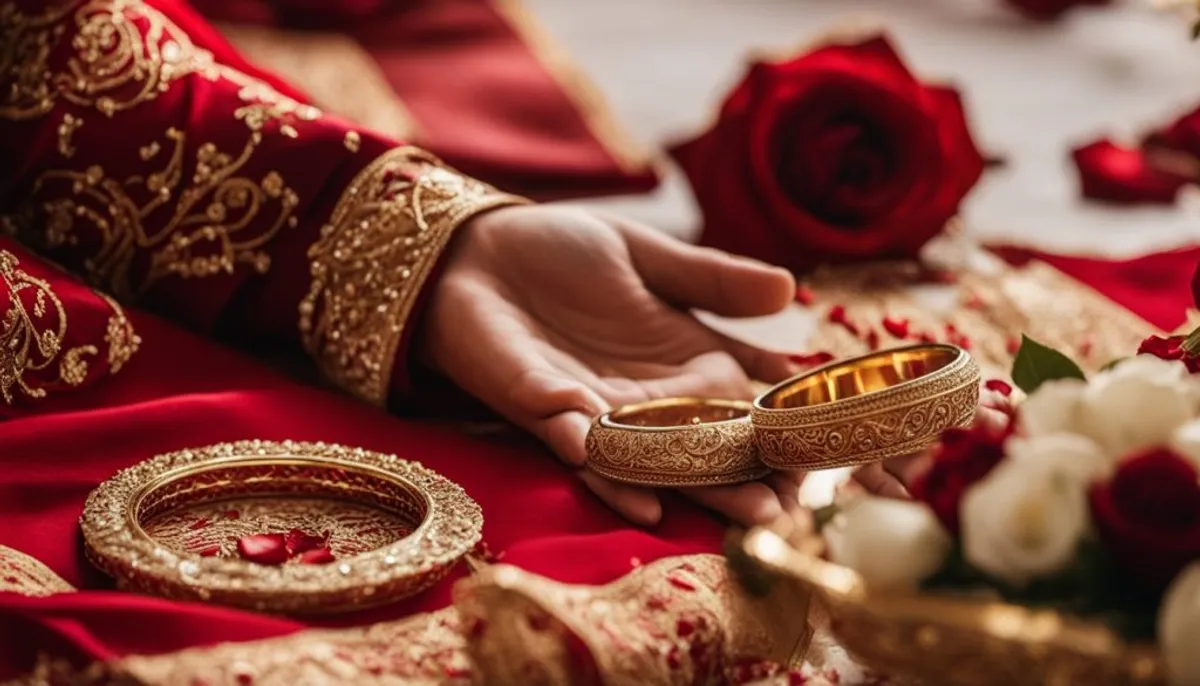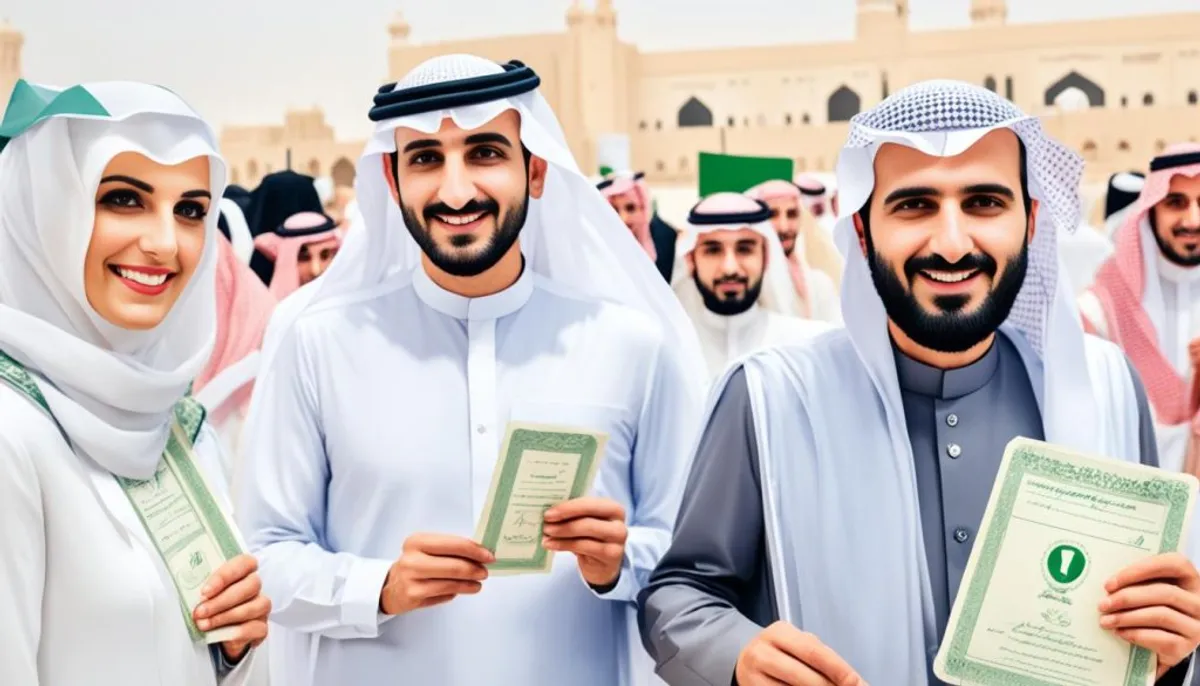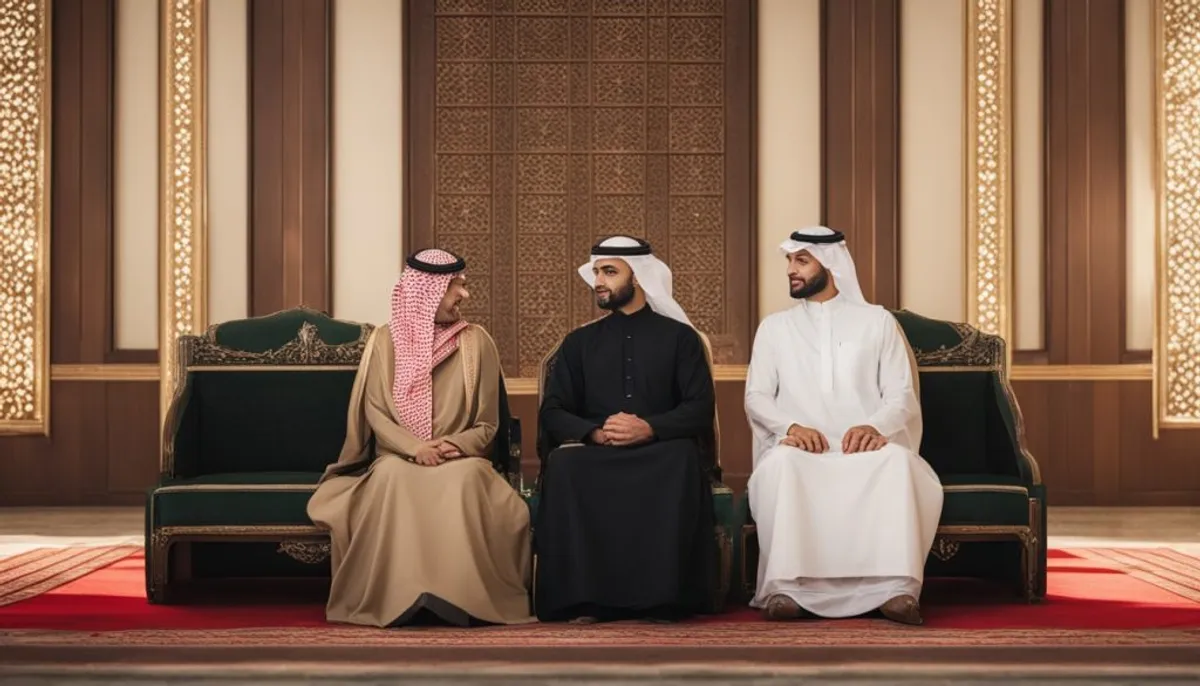Marriage in Saudi Arabia can be complex for those from other countries. The country’s laws on what is marriage, legal union, and wedding vows are deeply rooted in its culture and religion. It’s important to know these rules for those wanting to find life partners and make a marital commitment in the Kingdom.
Marriage here is more than just a marriage ceremony or marital status. It’s a deep matrimonial bond that includes the spousal relationship and nuptial ties. The laws on marriage are based on Islamic Sharia law, which affects family life and personal relationships.

In Saudi Arabia, marriages were often arranged by family or matchmakers. This shows how important family and community are in Saudi society. But, there have been changes in laws for expat marriages. These changes are making it easier and safer for foreign residents to get married in the Kingdom.
Introduction to Marriage in Saudi Arabia
In Saudi Arabia, marriage is a key part of life, deeply tied to Islamic law and traditional ways. It’s important to understand the rules and customs of marriage here for those looking to marry in this country.
Marriage Laws Based on Islamic Sharia
Marriage in Saudi Arabia follows Islamic Sharia laws. These laws set clear rules and limits. Saudis can marry people from Arab and Islamic countries with the right approvals. But, marrying non-Muslims is much harder.
Traditional Cultural Practices and Arranged Marriages
Many marriages in Saudi Arabia are arranged, often by family or matchmakers. This tradition helps keep family and community bonds strong. It also keeps social norms in place.
For Saudi women marrying foreigners, there are big challenges, like getting their spouses residency. The mix of what z marriage, marriage laws, Islamic Sharia, traditional cultural practices, and arranged marriages makes marriage in Saudi Arabia complex and varied.
Eligibility Criteria for Foreigners
In Saudi Arabia, Islamic Sharia law rules marriage. This means non-Muslim expatriates face legal and cultural hurdles, especially if they’re men. Muslim men can marry women from the People of the Book (Jews and Christians). But, Muslim women usually can’t marry non-Muslim men.
Considerations for Non-Muslims
Non-Muslims wanting to marry in Saudi Arabia face big challenges. The country’s Islamic roots shape its laws and culture. This can make it hard for those from other religions. They must understand the rules and get the right approvals to marry.
Age Requirements and Marital Status Regulations
The legal marriage age is 18 for everyone in Saudi Arabia. Foreigners must meet this age rule to marry here. They also need to show they’re not already married with a certificate of no impediment to marriage.
It’s key for foreigners to know the marriage rules in Saudi Arabia. By learning about the laws and customs, non-Muslims and younger people can get ready for marriage in this unique place.

Required Documentation
When you want to get married in Saudi Arabia, you need to bring some important documents. You’ll need your passports, a marriage certificate if you’ve been married before, a Certificate of No Impediment to Marriage from your home country, and a health certificate. Make sure these documents are legalized and translated into Arabic by experts before you turn them in.
Essential Documents
Here’s what you’ll need for a Saudi marriage application:
- Valid passports for both applicants
- Marriage certificate (if applicable)
- Certificate of No Impediment to Marriage from the home country
- Health certificate
Authentication and Translation Process
Getting your required documentation ready involves a few steps. First, get your documents notarized and legalized by the Ministry of Foreign Affairs in your country. Then, have them translated into Arabic by a professional translator. Finally, make sure the translated documents are okayed by the Saudi embassy or consulate before you submit them. Additionally, it's crucial to understand the legal requirements for expats to ensure a smooth process.
| Document Type | Authentication Process | Translation Requirement |
|---|---|---|
| Passport | Notarization and legalization | Certified translation to Arabic |
| Marriage Certificate | Notarization and legalization | Certified translation to Arabic |
| Certificate of No Impediment | Notarization and legalization | Certified translation to Arabic |
| Health Certificate | Notarization and legalization | Certified translation to Arabic |
The Marriage Application Process
Starting the marriage application in Saudi Arabia means couples need to collect all needed documents. They must then submit these to the Ministry of Interior or the right government body. This step is key for getting a legal marriage.
The application and other documents go through a detailed check by the authorities. This makes sure they meet Saudi marriage laws and rules. It also protects the marriage contract’s integrity.
After checking the documents, the authorities approve the marriage application. The couple then gets the official marriage contract. This document makes the marriage legal and shows the couple’s commitment to each other.
Submitting Documents
- Completed marriage application form
- Copies of valid passports for both parties
- Birth certificates
- Proof of income or financial stability
- Medical certificates
- Proof of divorce or death certificate (if applicable)
Verification and Approval
The documents go through a careful check to make sure they meet Saudi marriage laws. This checks if the couple is eligible, their marital status, and other important things.
If the documents are okay, the marriage application gets approved. This means the couple can get the official marriage contract.
Issuance of Marriage Contract
The last step is getting the official marriage contract from the authorities. This document makes the marriage legal and shows the couple’s commitment under Saudi law.

| Step | Description |
|---|---|
| Submission of Documents | Couples must gather and submit all required documents, including application forms, passports, and other supporting evidence. |
| Verification and Approval | The submitted documents undergo a thorough review to ensure compliance with Saudi marriage laws and regulations. |
| Issuance of Marriage Contract | Once the application is approved, the couple is issued the official marriage contract, legally recognizing their union. |
Legal Considerations and Cultural Norms
In Saudi Arabia, marriage laws mix Islamic law with cultural traditions. The need for a male guardian’s consent is mainly based on Islamic law for Muslim marriages. However, there are changes that make it easier for non-Muslim expatriates.
Consent and Guardian Roles:
- Non-Muslim couples can marry with just their mutual consent. They don’t need the wife’s father or guardian’s approval.
- For Muslim marriages, the guardian’s consent is a must for the marriage to be legal.
- Saudi society values family a lot. Marriages are seen as a union of two families, not just two people.
Cultural Norms and Religious Practices:
- Islamic customs and traditions are key in Saudi marriages. Couples must respect religious practices and ceremonies.
- In Saudi Arabia, modesty, gender roles, and family honor are highly valued. These values affect marriage negotiations and ceremonies.
- It’s important for those marrying in Saudi Arabia to understand these legal and cultural aspects, whether they’re Saudi or expatriates.
Conclusion
Marriage in Saudi Arabia is complex, deeply rooted in Islamic tradition and culture. Foreigners planning to marry there must understand the unique rules and legal aspects, including the eligibility criteria for foreigners. The country has made some positive changes, but Islamic law and customs still play a big role.
Understanding the legal framework, cultural norms, and needed documents is key. Getting advice from local authorities and legal experts is very helpful. This way, people can have meaningful and legal marriages that respect the country’s culture.
Marriage in Saudi Arabia is a journey that needs a lot of knowledge, hard work, and understanding of the culture. By knowing the traditions and legal rules, people can have successful and happy marriages in the Kingdom.
RelatedRelated articles



